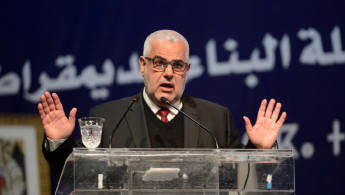'Earthquake was a divine warning': Morocco's Islamist ex-PM Benkirane statement prompts backlash, resignations
"What happened is probably the result of our sins," said former Moroccan Prime Minister Abdelilah Benkirane on Saturday, 23 September, in his first speech since the strongest earthquake in a century struck the North African kingdom.
The statement promoted outrage and resignations inside his party.
After two weeks of silence, Benkirane, head of the opposition Islamist party of Justice and Development (PJD), finally spoke on the deadly quake that killed over 2,900 and injured more than 5,000, mostly in vulnerable Moroccan villages.
"We must return to God because everything that befalls a person is a warning, and the right thing is for us to review as a nation and find out whether what happened might also be due to our sins, transgressions, and violations," said the populist figure in a speech on Saturday.
"Not only in their individual sense but in their general and political sense," added Benkirane, claiming that violations in elections and public management might also be behind the quake.
Benkirane has hinted before that the September 2021 election was rigged and called for an early election.
Several members of the PJD took to social media to distance themselves from their leader's "out of line" and "insensitive" speech towards thousands of villagers who lost their homes and loved ones in the disaster.
Abdelkader Amara, a former minister in the Benkirane administration, condemned the statements and announced his resignation on Monday.
"With a heart filled with pain over the outcome of the Justice and Development Party's experience, I announce my resignation from the party and all its bodies from this moment on," wrote Amara on Facebook.
Since Benkirane's return to the party's leadership, Amara has distanced herself from the Islamist group.
Meanwhile, Mohamed Yatim, a minister under the former Islamist administration, has also lamented the comments of his "brother" Benkirane.
"If this logic were correct, politics would be monastic. Regrettably, we leave aside politics, its issues, and its truths to get lost in "theology"," Yatim wrote on his social networks.
Benkirane left the political scene in 2016 after failing to reach a governmental alliance with other parties, despite leading his party to sweep local, regional, and national elections for the second time.
His failure was mainly due to disagreements with Aziz Akhannouch, RNI leader and current Moroccan PM, over the parties that could participate in the alliance.
King Mohammed VI removed Benkirane to end the stalemate and appointed Saadeddine El Othmani, another PJD member, as prime minister.
During El Othmani's era, Benkiran disappeared from the political scene, limiting his communication to pictures of handwritten notes he shared on his Facebook pages to announce major positions.
After a tragic loss in the September 2021 elections, Benkirane was called back to the leadership of the PJD to reform the party's reputation after the Othmani administration passed the normalisation deal with Israel and regulated Cannabis - two decisions that cost the party its political base.





 Follow the Middle East's top stories in English at The New Arab on Google News
Follow the Middle East's top stories in English at The New Arab on Google News


